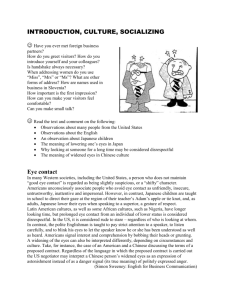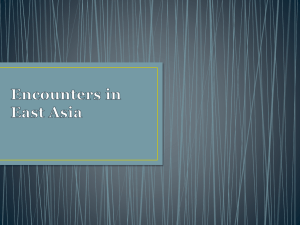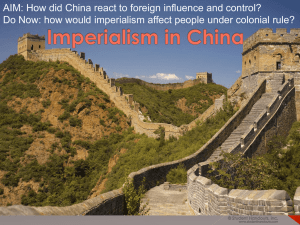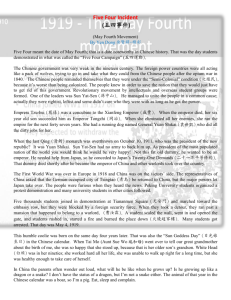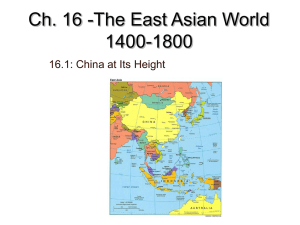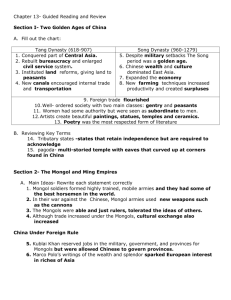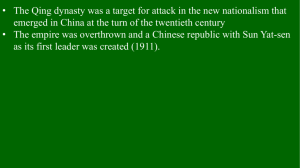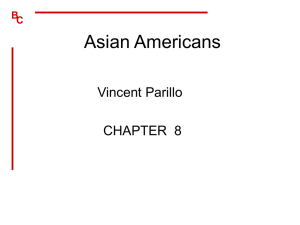Chapter 13: Spread of Civilizations in East Asia
advertisement
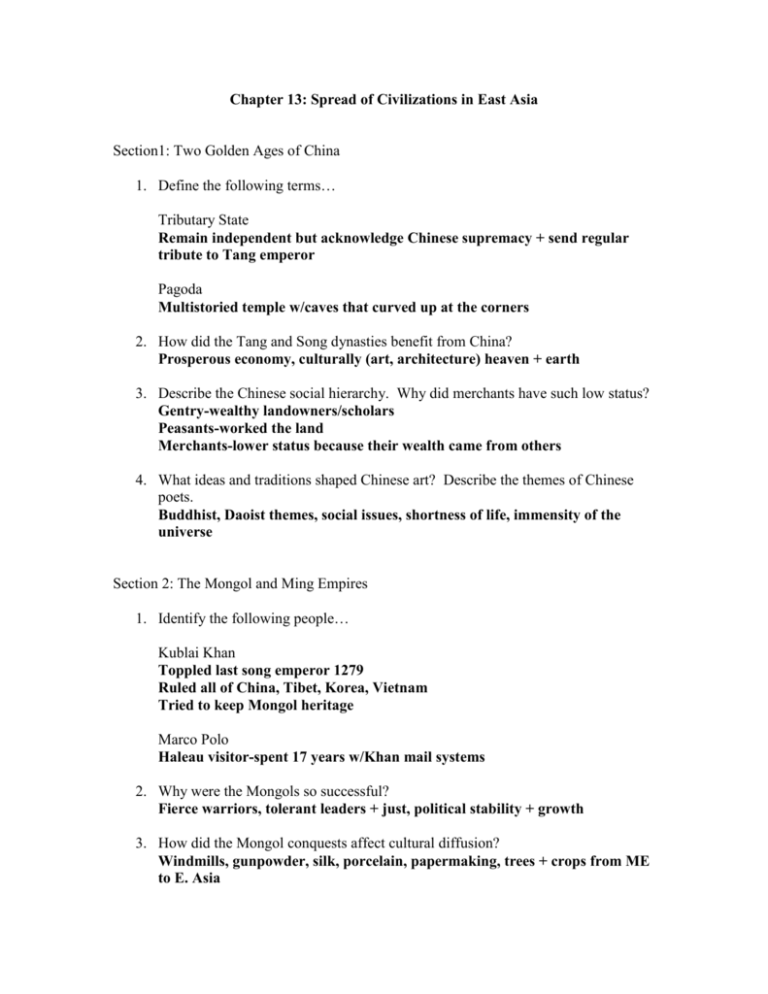
Chapter 13: Spread of Civilizations in East Asia Section1: Two Golden Ages of China 1. Define the following terms… Tributary State Remain independent but acknowledge Chinese supremacy + send regular tribute to Tang emperor Pagoda Multistoried temple w/caves that curved up at the corners 2. How did the Tang and Song dynasties benefit from China? Prosperous economy, culturally (art, architecture) heaven + earth 3. Describe the Chinese social hierarchy. Why did merchants have such low status? Gentry-wealthy landowners/scholars Peasants-worked the land Merchants-lower status because their wealth came from others 4. What ideas and traditions shaped Chinese art? Describe the themes of Chinese poets. Buddhist, Daoist themes, social issues, shortness of life, immensity of the universe Section 2: The Mongol and Ming Empires 1. Identify the following people… Kublai Khan Toppled last song emperor 1279 Ruled all of China, Tibet, Korea, Vietnam Tried to keep Mongol heritage Marco Polo Haleau visitor-spent 17 years w/Khan mail systems 2. Why were the Mongols so successful? Fierce warriors, tolerant leaders + just, political stability + growth 3. How did the Mongol conquests affect cultural diffusion? Windmills, gunpowder, silk, porcelain, papermaking, trees + crops from ME to E. Asia 4. How did the Ming emperors try to restore Chinese culture? 1368-brilliant, reassert Chinese greatness, restored civil service exam, board of censors watched over the bureaucracy/rice crops/rebuilt canals Section 3: Korea and its Traditions 1. How did location influence the development of Korean civilization? Yaw R. sep. China Peninsula that juts S. from Asian mainland Steep hills mts. W/costal plains-harbors, seafood Linking China + Japan/Koreans adopted + transf. trad. before passing 2. Give two examples of how Koreans adapted or modified Chinese ideas. Emphasis on family or foundations of the state- women’s roles became restricted, civil service exam (only aristocrats) Buddhism-celedon porcelain Section 4: An Island Empire Emerges 1. Identify the following… Ring of Fire Philippines, Indonesia, Aus + S. Asia Earthquakes, tsunami, volcanoes Yamato Clan Japanese society Shinto Japanese Religion-Kami 2. Describe how geography has influenced the development of Japanese civilization. China-Korea-Japan-fishing-strong respect for nature 3. What aspects of Japanese life were influenced by China? How did Japan remain unique? Prince Shotoku sent Japanese nobles to study in China (gov’t , art “Hiarchy emperor”, capital set up in Chinese factories, music, pagollas(no civil service exam!)-familial rank) 4. How did women influence culture at the Hein court? “The Pillow Book” Sei Shonogun wrote epithets of court manners Section 5: Japan’s Feudal Age 1. Define the following terms… Shogun Military leader Daimyo Warrior lords Samurai “those who serve” – lesser lords Bushido Code of ethics/like chivalry in medieval Europe Kabuki Drama (Okuni)-women banned form acting Haiku Mini poem 3 lines 17 syllables 2. Who held the most power in feudal Japan? Shogun – supreme military commander 3. What values did bushido emphasize? Honor, bravery, absolute loyalty to one’s lord, no fear of death 4. Describe three results of the development of the Tokugowa Shogunate.

